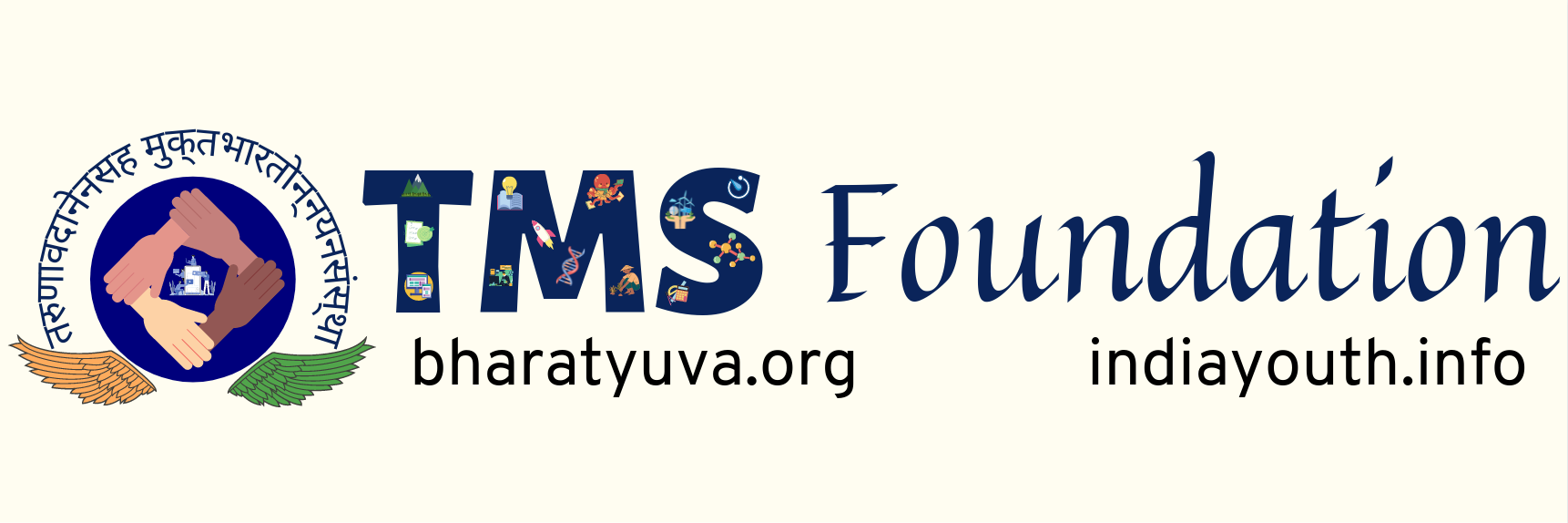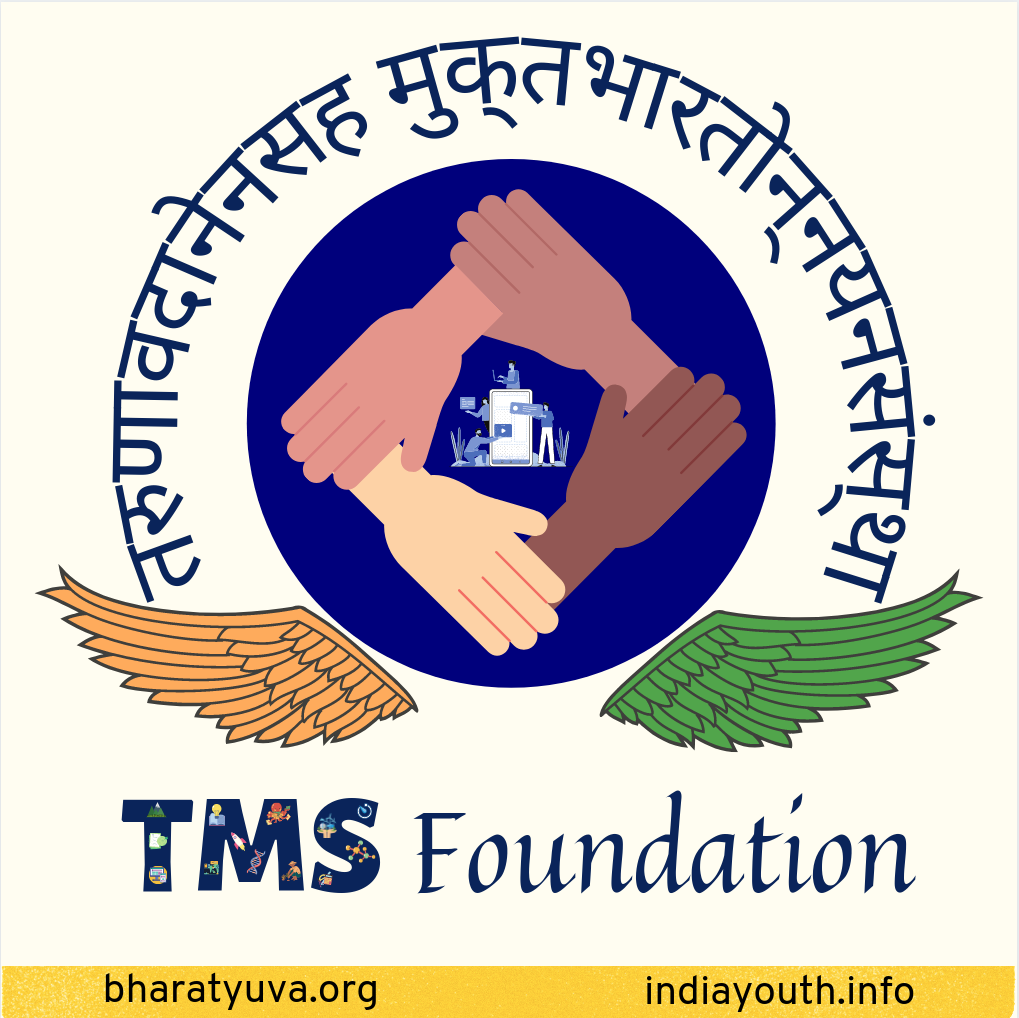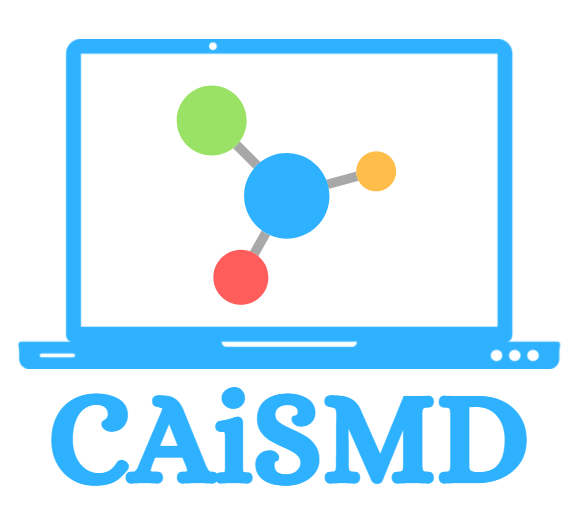

Meet the Speakers
-
Keynote Speakers
Dušanka Janežič
Dušanka Janežiˇc is full professor at the Faculty of Mathematics, Natural Sciences and Information Technologies at the University of Primorska (Slovenia). Founder of molecular modeling research in Slovenia with her research group currently ranking as one of the top research group in the field worldwide. Has published 2 scientific books and 130 publications in SCI journals with over 3000 pure citations in Web of Science database, and h-index 23. One of the Editors in the ACS Journal of Chemical Information and Modeling (2001-2014). In 2013, Recipient of Žiga Zois Award for outstanding research achievements in mathematics in natural sciences. In 1999, Recipient of Ambassador in Science of the Republic of Slovenia Award. From 2013-2019 she was appointed by the government of Republic of Slovenia as council member of the National Agency of Qualitative Evaluation of Higher Education in Slovenia. She worked in the USA as a visiting researcher at the National Institute of Standards and Technology. As a Senior Fulbright Scholar she conducted research in the USA at the National Institutes of Health. She worked at the Technical University of Munich, Germany as a DAAD fellow. Her current research interests include graph theory development, prediction of protein-protein and protein-ligand binding sites, biomolecular simulations, and the application of these techniques to problems in pharmaceutical research and drug development.------------------------------------------------------------------------------------------------------------------------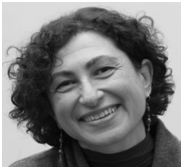
Özlem Taştan Bishop
Professor
Özlem is a Full Professor in structural bioinformatics at Rhodes University. She received her B.Sc. degree in Physics from Boğaziçi University, Istanbul, Turkey. Then she moved to the Department of Molecular Biology and Genetics at the same University for her M.Sc. degree. She obtained her Ph.D. from Max-Planck Institute for Molecular Genetics and Free University, Berlin, Germany in 2003. While doing her Ph.D., Özlem became interested in structural biology, and during her postdoctoral positions (Texas University, USA; University of Western Cape and University of Pretoria, South Africa) she gained experience in structural bioinformatics as well as structural biology. In 2009, Özlem took up an academic position at Rhodes University, South Africa. She established the Research Unit in Bioinformatics (RUBi) in 2013. She has graduated up to 13 Ph.D. and over 30 M.Sc. students since she joined Rhodes University. Özlem’s broad research interest is structural bioinformatics and its applications to drug design and development. Her recent interest is in the allosteric mechanisms of proteins and understanding the effects of non-synonymous single nucleotide variations on protein structure and function, in order: to decode the underlying causes of many inherited diseases; to uncover drug resistance mechanisms; and to investigate drug sensitivity issues in certain populations for precision medicine purposes. She has published over 75 research articles.
------------------------------------------------------------------------------------------------------------------------
Pieter Dorrestein
Dr. Dorrestein is Professor at the Skaggs School of Pharmacy and Pharmaceutical Sciences, and departments of Pharmacology and Pediatrics, University of California - San Diego. He is the Director of the Collaborative Mass Spectrometry Innovation Center and a Co-Director, Institute for Metabolomics Medicine in the Skaggs School of Pharmacy & Pharmaceutical Sciences, and Department of Pharmacology. Since his arrival to UCSD in 2006, Dr. Dorrestein has been pioneering the development of mass spectrometry methods to study the chemical ecological crosstalk between population of microorganisms, including host interactions for agricultural, diagnostic and therapeutic applications. He is the advisor to Cybele and is a co-founder and scientific advisor for Ometa and Enveda.------------------------------------------------------------------------------------------------------------------------
-
Oral Presenters
Daniel Madulu ShadrackDaniel Madulu Shadrack is a trained chemist, he holds a PhD in Computational Biophysics. He works with the St John’s University of Tanzania, Dodoma Tanzania. Daniel’s research focuses on the use of computational methods such as molecular dynamics, metadynamics, free energy methods and molecular docking to understand biomolecular process towards drug design. Over the past five years, Daniel has acted the role as the Director and co-organizer of the Biophysics schools in Africa, of which the school has trained over 100 young scientists across the continent. Daniel has established several networks and research contacts across the world, the active network and collaborations are from Italy, Canada, South Africa, Kenya, Cameroon, Malawi and Ghana. Daniel is a Co-PI of three research projects, two projects in COVID-19 and one on malaria. Both projects involve the use of different computational and experimental techniques to identify small molecules as potential drugs.------------------------------------------------------------------------------------------------------------------------Dušanka Janežič
Dušanka Janežiˇc is full professor at the Faculty of Mathematics, Natural Sciences and Information Technologies at the University of Primorska (Slovenia). Founder of molecular modeling research in Slovenia with her research group currently ranking as one of the top research group in the field worldwide. Has published 2 scientific books and 130 publications in SCI journals with over 3000 pure citations in Web of Science database, and h-index 23. One of the Editors in the ACS Journal of Chemical Information and Modeling (2001-2014). In 2013, Recipient of Žiga Zois Award for outstanding research achievements in mathematics in natural sciences. In 1999, Recipient of Ambassador in Science of the Republic of Slovenia Award. From 2013-2019 she was appointed by the government of Republic of Slovenia as council member of the National Agency of Qualitative Evaluation of Higher Education in Slovenia. She worked in the USA as a visiting researcher at the National Institute of Standards and Technology. As a Senior Fulbright Scholar she conducted research in the USA at the National Institutes of Health. She worked at the Technical University of Munich, Germany as a DAAD fellow. Her current research interests include graph theory development, prediction of protein-protein and protein-ligand binding sites, biomolecular simulations, and the application of these techniques to problems in pharmaceutical research and drug development.------------------------------------------------------------------------------------------------------------------------Jean Moto Ongagna
Profiles will be out soon------------------------------------------------------------------------------------------------------------------------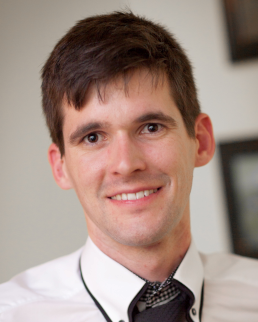
Johannes Kirchmair
Assistant Professor
Johannes Kirchmair is an Assistant Professor in cheminformatics at the Department of Pharmaceutical Chemistry of the University of Vienna and head of the Computational Drug Discovery and Design Group (COMP3D). He also is a group leader at the Center for Bioinformatics (ZBH) of the University of Hamburg. After earning his Ph.D. from the University of Innsbruck (2007), Johannes started his career as an application scientist at Inte:Ligand GmbH (Vienna) and as a university assistant at his alma mater. In 2010 he joined BASF SE (Ludwigshafen) as a postdoctoral research fellow. Thereafter he worked as a research associate at the University of Cambridge (2010-2013) and ETH Zurich (2013-2014). Johannes held a Junior Professorship in applied bioinformatics at the University of Hamburg (2014 to 2018) and an Associate Professorship in bioinformatics at the University of Bergen (2018 to 2019). He has been a visiting professor or lecturer at the National Institute of Warangal (2016), the University of Cagliari (2017) and the University of Vienna (2018). His main research interests include the development and application of computational methods for the prediction of the biological activities, metabolic fate and toxicity of small molecules (including natural products) in the context of drug discovery.
------------------------------------------------------------------------------------------------------------------------
Jude Betow
Profiles will be out soon------------------------------------------------------------------------------------------------------------------------
Kiran K. Telukunta
Ph.D & Workshop helper
In 2018, Kiran completed his doctoral research in Pharmaceutical Bioinformatics at the University of Freiburg (Germany), while managing several Scientific IT infrastructure for Bioinformatic and Cheminformatics scientific projects, under Prof. Dr. Stefan Günther. Since then, he has worked on several projects, including as a Backend Developer and Software Engineer at Flowers-Software GmbH and Scientific Cloud Coordinator at VIB in Gent (Belgium). He has previously taught a course on ”Drug Design”in the Master's Program in Pharmaceutical Biology, University of Applied Sciences, Zittau/Görlitz (Germany). He is Information System Administrator at ISES, a voluntary organisation in Freiburg (Germany). He is the one of the directors of the TMS Foundation, which voluntarily prepared the submission platform for this online workshop. During the workshop, he plans to present some general guidelines and underlying principles of gene cluster analysis with applications using Galaxy.
------------------------------------------------------------------------------------------------------------------------
Lucas Paul
Profiles will be out soon------------------------------------------------------------------------------------------------------------------------Lucie Karelle Djogang
Profiles will be out soon------------------------------------------------------------------------------------------------------------------------Mai M. Farid
Profiles will be out soon
------------------------------------------------------------------------------------------------------------------------Mary Anti Chama
Dr. Mary Chama is a Senior Lecturer at the University of Ghana. She is a natural product chemist with a research focus in the discovery of bioactive novel molecules mainly from medicinal plants. The biological activities of interest include antimicrobial, antiproliferative, cytotoxicity and activity against neglected tropical diseases. She has included computational target prediction, and molecular modelling to suggest mode of action in the drug discovery studies. Has experience in various plant extraction methods, chromatography techniques, isolation and characterization of plant component.------------------------------------------------------------------------------------------------------------------------
Masha Niv
Masha Niv is a Full Professor at The Hebrew University of Jerusalem, where she has been working for 14 years. She obtained her Bachelor of Science (BSc) degree in Chemistry (cum laude) from the Hebrew University of Jerusalem (1989 - 1993), followed by a direct Ph.D. in theoretical chemistry from the University of Jerusalem (1994 - 2001). She carried out postdoctoral research at the Weill Cornell Medical College before moving back to the Hebrew University of Jerusalem to open her lab. She previously served as Vice Dean for Research, The Faculty of Agriculture, Food and Environment, promoting collaborative and international research. She is currently a Board Member Israel of the Institute for Advanced Studies (Jerusalem, Israel). Masha is a highly recognized scientist and a well traveled conference speaker. Her research has been focused on the rational design of tastants, taste modulators, and drugs. Her group studies bitter and sweet molecules and their receptors, using insilico, in-vitro and psychophysics tools.------------------------------------------------------------------------------------------------------------------------

Miquel Duran-Frigola
Ph.D Researcher
Miquel’s research interests lay at the intersection between drug discovery and large-scale biological data analysis. During his PhD studies and early career, Miquel developed state-of-the-art in silico methods, producing over 30 scientific publications in a broad range of topics, from theoretical chemistry to phenotypic screening. Along this process, he has worked at IRB Barcelona, the Massachusetts Institute of Technology (MIT), Tel Aviv University, IS Global-CISM (Mozambique) and CIDRZ (Zambia). Recently, Miquel has founded the Ersilia Open Source Initiative. With Ersilia, Miquel aims to apply his expertise to the context of open science and global health, accelerating the discovery of treatments for neglected clinical needs. Miquel is the lead scientist behind the development of the Chemical Checker, a computational drug discovery tool based on the systematic integration of diverse bioactivity data.
------------------------------------------------------------------------------------------------------------------------
Özlem Taştan Bishop
Professor
Özlem is a Full Professor in structural bioinformatics at Rhodes University. She received her B.Sc. degree in Physics from Boğaziçi University, Istanbul, Turkey. Then she moved to the Department of Molecular Biology and Genetics at the same University for her M.Sc. degree. She obtained her Ph.D. from Max-Planck Institute for Molecular Genetics and Free University, Berlin, Germany in 2003. While doing her Ph.D., Özlem became interested in structural biology, and during her postdoctoral positions (Texas University, USA; University of Western Cape and University of Pretoria, South Africa) she gained experience in structural bioinformatics as well as structural biology. In 2009, Özlem took up an academic position at Rhodes University, South Africa. She established the Research Unit in Bioinformatics (RUBi) in 2013. She has graduated up to 13 Ph.D. and over 30 M.Sc. students since she joined Rhodes University. Özlem’s broad research interest is structural bioinformatics and its applications to drug design and development. Her recent interest is in the allosteric mechanisms of proteins and understanding the effects of non-synonymous single nucleotide variations on protein structure and function, in order: to decode the underlying causes of many inherited diseases; to uncover drug resistance mechanisms; and to investigate drug sensitivity issues in certain populations for precision medicine purposes. She has published over 75 research articles.
------------------------------------------------------------------------------------------------------------------------
Pierre Valery Kemdoum Sinda
Profiles will be out soon
------------------------------------------------------------------------------------------------------------------------
Samuel A. Egieyeh
Ph.D - Pharmacist
Dr. Samuel Ayodele Egieyeh is a seasoned and highly experienced pharmacist (qualified in 1997) with Bachelors and Masters degrees in Pharmacy, and a Ph.D. in Bioinformatics. He also has a post-graduate diploma in clinical research and drug development from the University of Basel, Basel Switzerland. He is currently a senior lecturer at the discipline of Pharmacology and Clinical Pharmacy, School of Pharmacy, University of the Western Cape, Cape Town South Africa. He leads the Computational Pharmacology and Cheminformatics Group (CPCG). His research focuses on computational drug discovery and design; data science (including cheminformatics, bioinformatics, machine learning and biostatistics techniques) for predictive drug development and precision medicine for infectious and non-communicable diseases. His presentation will show the use of data science in drug discovery and development, therapeutics, and precision medicine. The presentation will also introduce the “University of the Western Cape’s Computational Pharmacology and Chemoinformatic Platform” that is used to analyse hit compounds from high-throughput assays (HTS) available in public bioactivity databases. The platform provides data analytics and data mining tools for researchers in drug discovery and design to analyse and mine useful data from their in vitro experiments in order to make rational and viable drug discovery and design decisions.
------------------------------------------------------------------------------------------------------------------------
Victor C. Osamor
Professor
Victor C. Osamor is a Full Professor of Computer Science, former Head of Department, Computer and Information Sciences and Coordinator/ Director, Covenant University Center for Information Technology (CU CIT). Prof. Osamor is also the Applied Research Coordinator for World bank-6 million dollar funded Covenant Applied Information and Communication - African Center of Excellence (CApIC-ACE) research grant project with experience and previous involvement in NIH, NSF, H3Africa and H3Abionet research projects. He has experience in postgraduate supervision with graduated and current M.Sc. and Ph.D. students under his training. Prof. Osamor is an Adjunct Professor and External Examiner to other Universities and a Grant Reviewer for the Executive Government Agency of National Science Centre (Narodowe Centrum Nauki -NCN), Poland. He researches in Bioinformatics, Artificial Intelligence, Data analytics with other interest in Software techniques, Cyber security, Computer graphics and animation with certification in Artificial Intelligence, Predictive Analytics in IBM SPSS Modeller, Microsoft Technical Associate (MTA) in Database, Oracle Database and SQL programming. Prof. Osamor is a Marie Curie Fellow and belongs to Marie Curie Alumni Association (MCAA), having experience in European Commission/EU Co-funded projects with European Research Center for Informatics and Mathematics (ERCIM). Prof. Osamor is a book author, co-editor of a textbook, reviewer and has several publications in reputable journals to his credit especially in Bioinformatics. His Ph.D is in Computer Science and Bioinformatics and a Post-Doctorial fellowship is at University of Warsaw, Poland.
------------------------------------------------------------------------------------------------------------------------Ya Chen
Dr. Ya Chen (Anya) is a postdoctoral researcher in the Computational Drug Discovery and Design Group (COMP3D) of the Department of Pharmaceutical sciences, University of Vienna, Austria. She specializes in the development and application of in silico methods for natural products research. In 2013, she earned her Bachelor’s Degree in Pharmacy at Jilin University, China. She then studied Medicinal Chemistry at Peking University and earned her Master’s Degree of Science in 2016. In 2020, she was awarded a PhD in cheminformatics from Universität Hamburg, Germany.------------------------------------------------------------------------------------------------------------------------ -
Hands-on Presenters
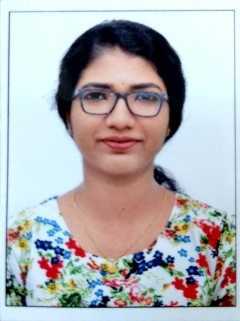 Alanis Tanya EdwinAlanis TanyaEdwin is currently pursuing her master's course in Marine Science from Goa University, India. She is a member of Tarunavadaanenasaha Muktbharatonnayana Samstha (TMS) Foundation since May 2021.------------------------------------------------------------------------------------------------------------------------Daniel Madulu ShadrackDaniel Madulu Shadrack is a trained chemist, he holds a PhD in Computational Biophysics. He works with the St John’s University of Tanzania, Dodoma Tanzania. Daniel’s research focuses on the use of computational methods such as molecular dynamics, metadynamics, free energy methods and molecular docking to understand biomolecular process towards drug design. Over the past five years, Daniel has acted the role as the Director and co-organizer of the Biophysics schools in Africa, of which the school has trained over 100 young scientists across the continent. Daniel has established several networks and research contacts across the world, the active network and collaborations are from Italy, Canada, South Africa, Kenya, Cameroon, Malawi and Ghana. Daniel is a Co-PI of three research projects, two projects in COVID-19 and one on malaria. Both projects involve the use of different computational and experimental techniques to identify small molecules as potential drugs.------------------------------------------------------------------------------------------------------------------------
Alanis Tanya EdwinAlanis TanyaEdwin is currently pursuing her master's course in Marine Science from Goa University, India. She is a member of Tarunavadaanenasaha Muktbharatonnayana Samstha (TMS) Foundation since May 2021.------------------------------------------------------------------------------------------------------------------------Daniel Madulu ShadrackDaniel Madulu Shadrack is a trained chemist, he holds a PhD in Computational Biophysics. He works with the St John’s University of Tanzania, Dodoma Tanzania. Daniel’s research focuses on the use of computational methods such as molecular dynamics, metadynamics, free energy methods and molecular docking to understand biomolecular process towards drug design. Over the past five years, Daniel has acted the role as the Director and co-organizer of the Biophysics schools in Africa, of which the school has trained over 100 young scientists across the continent. Daniel has established several networks and research contacts across the world, the active network and collaborations are from Italy, Canada, South Africa, Kenya, Cameroon, Malawi and Ghana. Daniel is a Co-PI of three research projects, two projects in COVID-19 and one on malaria. Both projects involve the use of different computational and experimental techniques to identify small molecules as potential drugs.------------------------------------------------------------------------------------------------------------------------Darshana Joshi
Darshana Joshi is currently pursuing her Master’s course in Bioinformatics at Guru Nanak Khalsa College of Arts, Science and Commerce from Mumbai University, India. She is a Member of Tarunavadaanenasaha Muktbharatonnayana Samstha (TMS) Foundation since May 2021.------------------------------------------------------------------------------------------------------------------------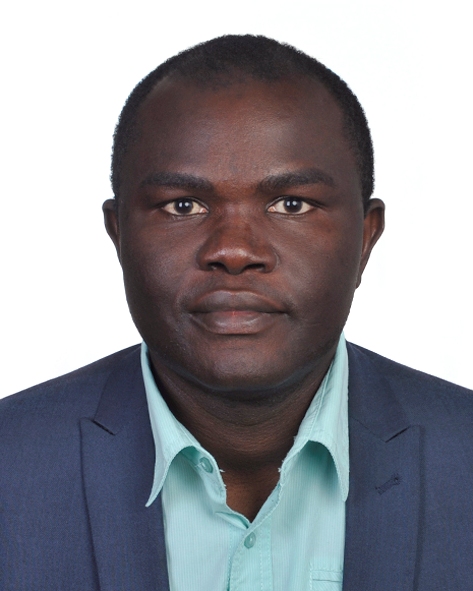
Fidele Ntie-Kang
Workshop Organizer
Fidele Ntie-Kang is one of the organizers of the online workshop "Computational Applications in Secondary Metabolite Discovery (CAiSMD)". He currently heads the Molecular Simulations Laboratory, Chemistry Department, University of Buea (Cameroon). He studied Chemistry at the University of Douala (Cameroon) from 1999 to 2005, leading to Bachelor's and Master's degrees. His Ph.D. was based on molecular modeling of anti-tubercular drug target to design novel inhibitors, followed by an Habilitation in Pharmaceutical Chemistry from Martin-Luther University Halle-Wittenberg, Halle (Saale) (Germany), under Prof. Wolfgang Sippl. He is concurrently a Guest Professor or Lecturer at the Technical University, Dresden (Germany), an Adjunct Professor at the Nelson-Mandela African Institution of Science and Technology, Arusha (Tanzania) and has previously taught a course on ”Drug Design'' in the Masters Program in Pharmaceutical Biology, University of Applied Sciences, Zittau/Görlitz (Germany). His current focus is the discovery of bioactive natural products from African flora by the use of virtual screening followed by in vitro assays. A major contribution of his research team has been the development of the African natural products database. He has authored or co-authored more than 80 publications and has served as Associate Editor in several journals, as Guest Editor in special issues in the journals Molecules and Frontiers in Pharmacology. He holds several awards, including the Georg Forster Fellowship from the Alexander von Humboldt Foundation (Germany) and is a member of several academic societies, including the American Chemical Society and the Cameroon Academy of Young Scientists. He is the editor of the book series "Chemoinformatics of Natural Products'' published by Degruyter.
------------------------------------------------------------------------------------------------------------------------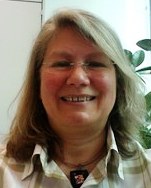
Jutta Ludwig-Müller
Professor & Workshop organizer
Prof. Jutta Ludwig-Müller is one of the organizers of the online workshop "Computational Applications in Secondary Metabolite Discovery (CAiSMD)". From 1999, she has been a Professor of Plant Physiology at the Technical University Dresden (Germany). After studying Biology at Frankfurt (Main) leading to a Diploma thesis on the topic "Auxin biosynthesis in Brassicaceae" (1981-1986), she completed her PhD dissertation in 1990 at the Botanical Institute of the Johann Wolfgang Goethe Universität (JWGU) in Frankfurt (Main) on the topic "Auxin biosynthesis and the role of auxins during the clubroot disease", with several visits to the laboratory of Dr. Ephraim Epstein, Volcani Center, Israel. After a research assistanship and postdoctoral stay in the USA, she completed her Habilitation in 1996. From 1995 to1999, she was an Assistant Professor at the Botanical Institute of the JWGU. During this period she made several visits to the laboratory of Dr. Jerry D. Cohen, United States Department of Agriculture, Beltsville, Maryland (USA). Her research focuses on mechanisms leading to plant-pathogen (clubroot disease) interactions or the interaction with beneficial microorganisms (fungal endophytes). He group is interested in the role of plant hormones and secondary plant products for development of pathogenic or symbiotic interactions of fungi with host plants. For better understanding of the events leading to pathogenesis, the team have begun to identify differentially expressed genes during host/pathogen interaction. She is also interested in the role of auxins and glucosinolates during plant development and therefore they study the biosynthesis, metabolism and regulation mechanisms controlling the endogenous concentrations of these compounds. In addition to glucosinolates, her team also investigates the bioactivity of other secondary plant metabolites such as flavonoids and phenylpropanoids. In 2019, she was awarded the Spiridion Brusina Medal of the Croatian Society of Natural Sciences. She is a member of several scientific organizations, including the American Society of Plant Biology (ASPB). the German Botanical Society (DBG), Deutscher Hochschulverband (DHV) and the International Plant Growth Substances Association. She is a member of the editorial board of several journals, including being the Editor-in-Chief of the journal Actualia, (published by the German Botanical Society) and Editor-in-Chief of the journal Journal of Plant Growth Regulation (Springer).
------------------------------------------------------------------------------------------------------------------------Kai Blin
Profiles will be out soon------------------------------------------------------------------------------------------------------------------------
Kiran K. Telukunta
Ph.D & Workshop helper
In 2018, Kiran completed his doctoral research in Pharmaceutical Bioinformatics at the University of Freiburg (Germany), while managing several Scientific IT infrastructure for Bioinformatic and Cheminformatics scientific projects, under Prof. Dr. Stefan Günther. Since then, he has worked on several projects, including as a Backend Developer and Software Engineer at Flowers-Software GmbH and Scientific Cloud Coordinator at VIB in Gent (Belgium). He has previously taught a course on ”Drug Design”in the Master's Program in Pharmaceutical Biology, University of Applied Sciences, Zittau/Görlitz (Germany). He is Information System Administrator at ISES, a voluntary organisation in Freiburg (Germany). He is the one of the directors of the TMS Foundation, which voluntarily prepared the submission platform for this online workshop. During the workshop, he plans to present some general guidelines and underlying principles of gene cluster analysis with applications using Galaxy.
------------------------------------------------------------------------------------------------------------------------Pankaj Mishra
Dr. Pankaj Mishra specializes in molecular artificial intelligence and computer-aided drug design. He holds a Doctor of Philosophy degree (magna cum laude) from the University of Freiburg, Germany under the supervision of Prof. Dr. Stefan Gunther, and a Master’s degree in Pharmaceutical Chemistry from the Indian Institute of Technology.
------------------------------------------------------------------------------------------------------------------------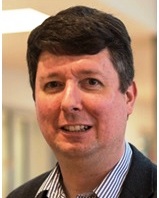
Tilmann Weber
Professor
Tilmann Weber is a Professor for Natural Products Genome Mining and Associate Scientific Director of the “Natural Products Genome Mining Group” at the Novo Nordisk Foundation Center for Biosustainability of the Technical University of Denmark. His main research interest is focused on deciphering the molecular pathways and engineering the biosynthesis of natural products by combining genetic, biochemical and bioinformatics methods. He is a pioneer in developing software for the automated genome mining (CLUSEAN, antiSMASH, antiSMASH-DB) and analysis of secondary metabolite biosynthetic pathways. His group was able to firstly elucidate the biosynthetic pathways of the elfamycin family of antibiotics and is deeply involved in developing CRISPR-based metabolic engineering tools for actinomycetes. Tilmann Weber is a member of the Editorial Board of Scientific Reports, Metabolic Engineering, and Associate Editor for Synthetic and Systems Biotechnology.
------------------------------------------------------------------------------------------------------------------------
Thommas M. Musyoka
Postdoc
Dr. Thommas Mutemi Musyoka has a Ph.D. in bioinformatics from Rhodes University, South Africa. He is involved in several computational studies for early stage identification of potential hits against infectious agents as well as deciphering their underlying mechanisms of drug resistance. He is also involved in the maintenance and upgrading of the South African Natural Compound Database (SANCDB). Currently, he is working as a postdoctoral research fellow in the Research Unit of Bioinformatics (RUBi), Rhodes University where he also mentors several postgraduate students working on different computational studies.
------------------------------------------------------------------------------------------------------------------------ -
Round Table Discussion Participants
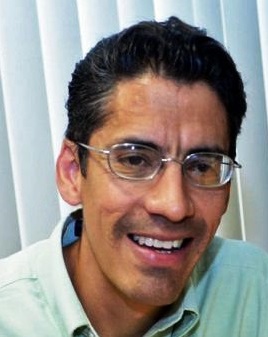
José L. Medina-Franco
Professor
Dr. Medina-Franco holds a B.Sc. in Chemistry (1998, National Autonomous University of Mexico (UNAM), a M.Sc. and Ph.D. degree (2005, both from the UNAM). In 2005, Dr. Medina Franco joined the University of Arizona as a postdoctoral fellow under the supervision of Prof. Gerald Maggiora and he was named Assistant Member at the Torrey Pines Institute for Molecular Studies in Florida in August 2007. In 2013, he conducted research at the Mayo Clinic. In 2014 he joined UNAM and now is Full Time Research Professor. He leads the DIFACQUIM research group at UNAM. The research focus is on chemoinformatics and computer-aided drug design with applications on epigenetic targets and natural products. He is a member of the National Researcher System, National Council of Science and Technology in Mexico with the highest level, III. In 2016, he was appointed as Research Collaborator of the Mayo Clinic and in 2017 he was named Fellow of the Royal Society of Chemistry (UK) and was Visiting Professor of the University of Montreal at Quebec in 2019. José has published 225 peer-reviewed papers, 23 books chapters and issued one international patent. He has edited the books Epi-Informatics and Food Informatics. He serves as guest editor of the Journal of Chemoinformatics, Frontiers in Chemistry and Biomolecules, and is member of the Scientific Advisory Board of the company Epigenavir, LLC (USA). Since 2007 he has been PI in several research grants funded by government institutions and pharmaceutical companies. Dr. Medina Franco has supervised the research of 8 postdoctoral fellows, 5 Ph.D. students, 5 Masters, and 18 Undergraduate students. He teaches the course Chemoinformatics at UNAM.
------------------------------------------------------------------------------------------------------------------------ -
Chair
Dušanka Janežič
Dušanka Janežiˇc is full professor at the Faculty of Mathematics, Natural Sciences and Information Technologies at the University of Primorska (Slovenia). Founder of molecular modeling research in Slovenia with her research group currently ranking as one of the top research group in the field worldwide. Has published 2 scientific books and 130 publications in SCI journals with over 3000 pure citations in Web of Science database, and h-index 23. One of the Editors in the ACS Journal of Chemical Information and Modeling (2001-2014). In 2013, Recipient of Žiga Zois Award for outstanding research achievements in mathematics in natural sciences. In 1999, Recipient of Ambassador in Science of the Republic of Slovenia Award. From 2013-2019 she was appointed by the government of Republic of Slovenia as council member of the National Agency of Qualitative Evaluation of Higher Education in Slovenia. She worked in the USA as a visiting researcher at the National Institute of Standards and Technology. As a Senior Fulbright Scholar she conducted research in the USA at the National Institutes of Health. She worked at the Technical University of Munich, Germany as a DAAD fellow. Her current research interests include graph theory development, prediction of protein-protein and protein-ligand binding sites, biomolecular simulations, and the application of these techniques to problems in pharmaceutical research and drug development.------------------------------------------------------------------------------------------------------------------------
Fidele Ntie-Kang
Workshop Organizer
Fidele Ntie-Kang is one of the organizers of the online workshop "Computational Applications in Secondary Metabolite Discovery (CAiSMD)". He currently heads the Molecular Simulations Laboratory, Chemistry Department, University of Buea (Cameroon). He studied Chemistry at the University of Douala (Cameroon) from 1999 to 2005, leading to Bachelor's and Master's degrees. His Ph.D. was based on molecular modeling of anti-tubercular drug target to design novel inhibitors, followed by an Habilitation in Pharmaceutical Chemistry from Martin-Luther University Halle-Wittenberg, Halle (Saale) (Germany), under Prof. Wolfgang Sippl. He is concurrently a Guest Professor or Lecturer at the Technical University, Dresden (Germany), an Adjunct Professor at the Nelson-Mandela African Institution of Science and Technology, Arusha (Tanzania) and has previously taught a course on ”Drug Design'' in the Masters Program in Pharmaceutical Biology, University of Applied Sciences, Zittau/Görlitz (Germany). His current focus is the discovery of bioactive natural products from African flora by the use of virtual screening followed by in vitro assays. A major contribution of his research team has been the development of the African natural products database. He has authored or co-authored more than 80 publications and has served as Associate Editor in several journals, as Guest Editor in special issues in the journals Molecules and Frontiers in Pharmacology. He holds several awards, including the Georg Forster Fellowship from the Alexander von Humboldt Foundation (Germany) and is a member of several academic societies, including the American Chemical Society and the Cameroon Academy of Young Scientists. He is the editor of the book series "Chemoinformatics of Natural Products'' published by Degruyter.
------------------------------------------------------------------------------------------------------------------------
Jutta Ludwig-Müller
Professor & Workshop organizer
Prof. Jutta Ludwig-Müller is one of the organizers of the online workshop "Computational Applications in Secondary Metabolite Discovery (CAiSMD)". From 1999, she has been a Professor of Plant Physiology at the Technical University Dresden (Germany). After studying Biology at Frankfurt (Main) leading to a Diploma thesis on the topic "Auxin biosynthesis in Brassicaceae" (1981-1986), she completed her PhD dissertation in 1990 at the Botanical Institute of the Johann Wolfgang Goethe Universität (JWGU) in Frankfurt (Main) on the topic "Auxin biosynthesis and the role of auxins during the clubroot disease", with several visits to the laboratory of Dr. Ephraim Epstein, Volcani Center, Israel. After a research assistanship and postdoctoral stay in the USA, she completed her Habilitation in 1996. From 1995 to1999, she was an Assistant Professor at the Botanical Institute of the JWGU. During this period she made several visits to the laboratory of Dr. Jerry D. Cohen, United States Department of Agriculture, Beltsville, Maryland (USA). Her research focuses on mechanisms leading to plant-pathogen (clubroot disease) interactions or the interaction with beneficial microorganisms (fungal endophytes). He group is interested in the role of plant hormones and secondary plant products for development of pathogenic or symbiotic interactions of fungi with host plants. For better understanding of the events leading to pathogenesis, the team have begun to identify differentially expressed genes during host/pathogen interaction. She is also interested in the role of auxins and glucosinolates during plant development and therefore they study the biosynthesis, metabolism and regulation mechanisms controlling the endogenous concentrations of these compounds. In addition to glucosinolates, her team also investigates the bioactivity of other secondary plant metabolites such as flavonoids and phenylpropanoids. In 2019, she was awarded the Spiridion Brusina Medal of the Croatian Society of Natural Sciences. She is a member of several scientific organizations, including the American Society of Plant Biology (ASPB). the German Botanical Society (DBG), Deutscher Hochschulverband (DHV) and the International Plant Growth Substances Association. She is a member of the editorial board of several journals, including being the Editor-in-Chief of the journal Actualia, (published by the German Botanical Society) and Editor-in-Chief of the journal Journal of Plant Growth Regulation (Springer).------------------------------------------------------------------------------------------------------------------------
Samuel A. Egieyeh
Ph.D - Pharmacist
Dr. Samuel Ayodele Egieyeh is a seasoned and highly experienced pharmacist (qualified in 1997) with Bachelors and Masters degrees in Pharmacy, and a Ph.D. in Bioinformatics. He also has a post-graduate diploma in clinical research and drug development from the University of Basel, Basel Switzerland. He is currently a senior lecturer at the discipline of Pharmacology and Clinical Pharmacy, School of Pharmacy, University of the Western Cape, Cape Town South Africa. He leads the Computational Pharmacology and Cheminformatics Group (CPCG). His research focuses on computational drug discovery and design; data science (including cheminformatics, bioinformatics, machine learning and biostatistics techniques) for predictive drug development and precision medicine for infectious and non-communicable diseases. His presentation will show the use of data science in drug discovery and development, therapeutics, and precision medicine. The presentation will also introduce the “University of the Western Cape’s Computational Pharmacology and Chemoinformatic Platform” that is used to analyse hit compounds from high-throughput assays (HTS) available in public bioactivity databases. The platform provides data analytics and data mining tools for researchers in drug discovery and design to analyse and mine useful data from their in vitro experiments in order to make rational and viable drug discovery and design decisions.
------------------------------------------------------------------------------------------------------------------------
Thommas M. Musyoka
Postdoc
Dr. Thommas Mutemi Musyoka has a Ph.D. in bioinformatics from Rhodes University, South Africa. He is involved in several computational studies for early stage identification of potential hits against infectious agents as well as deciphering their underlying mechanisms of drug resistance. He is also involved in the maintenance and upgrading of the South African Natural Compound Database (SANCDB). Currently, he is working as a postdoctoral research fellow in the Research Unit of Bioinformatics (RUBi), Rhodes University where he also mentors several postgraduate students working on different computational studies.
------------------------------------------------------------------------------------------------------------------------
Tilmann Weber
Professor
Tilmann Weber is a Professor for Natural Products Genome Mining and Associate Scientific Director of the “Natural Products Genome Mining Group” at the Novo Nordisk Foundation Center for Biosustainability of the Technical University of Denmark. His main research interest is focused on deciphering the molecular pathways and engineering the biosynthesis of natural products by combining genetic, biochemical and bioinformatics methods. He is a pioneer in developing software for the automated genome mining (CLUSEAN, antiSMASH, antiSMASH-DB) and analysis of secondary metabolite biosynthetic pathways. His group was able to firstly elucidate the biosynthetic pathways of the elfamycin family of antibiotics and is deeply involved in developing CRISPR-based metabolic engineering tools for actinomycetes. Tilmann Weber is a member of the Editorial Board of Scientific Reports, Metabolic Engineering, and Associate Editor for Synthetic and Systems Biotechnology.
------------------------------------------------------------------------------------------------------------------------
